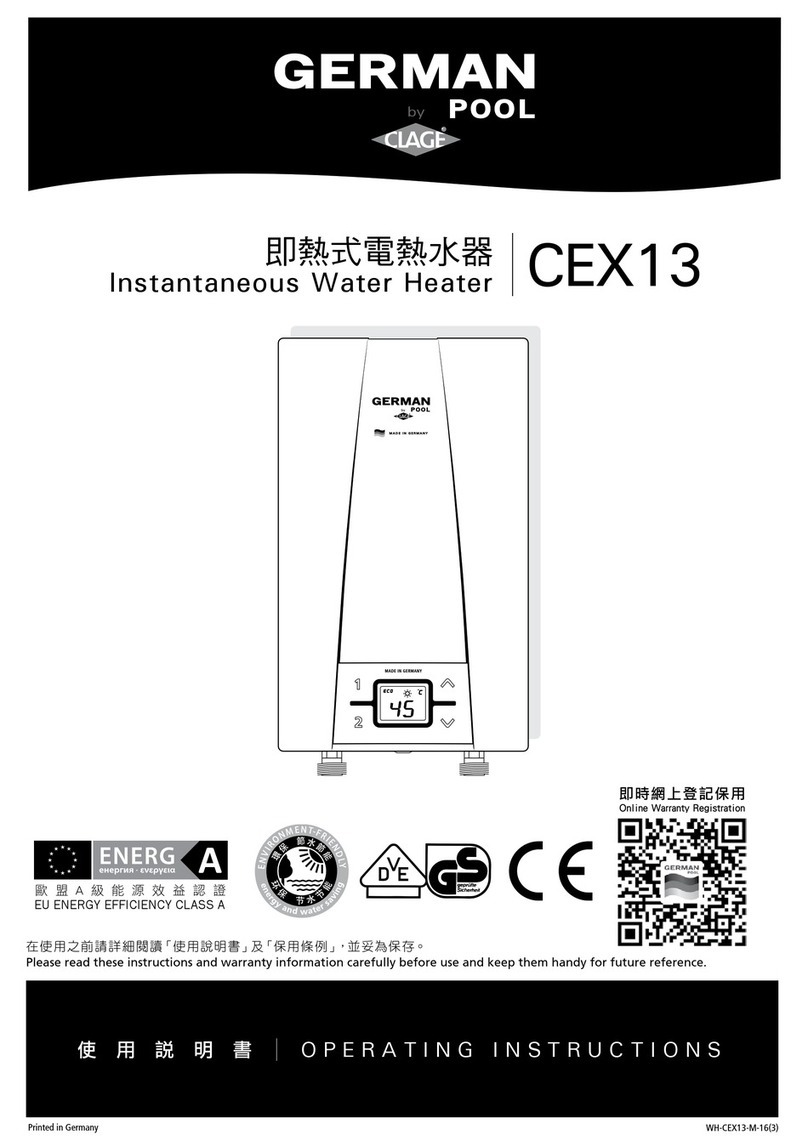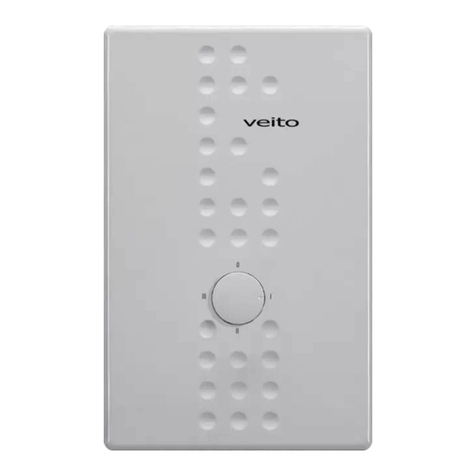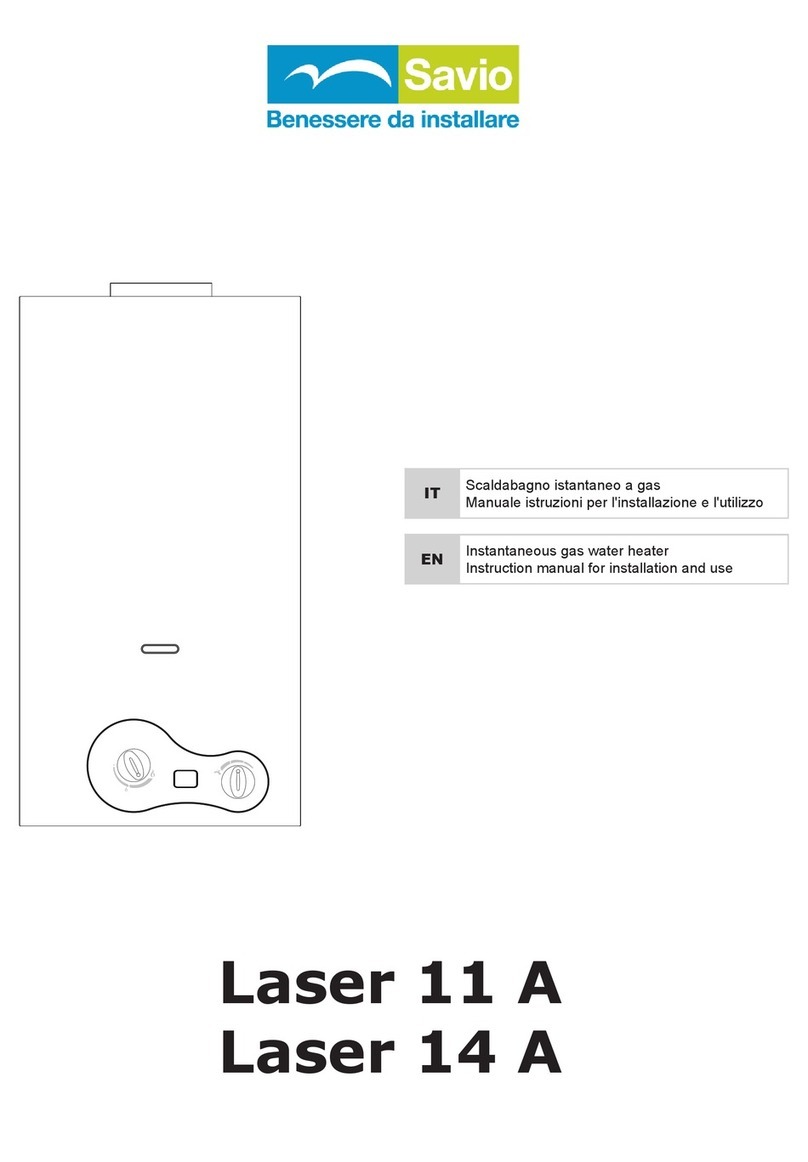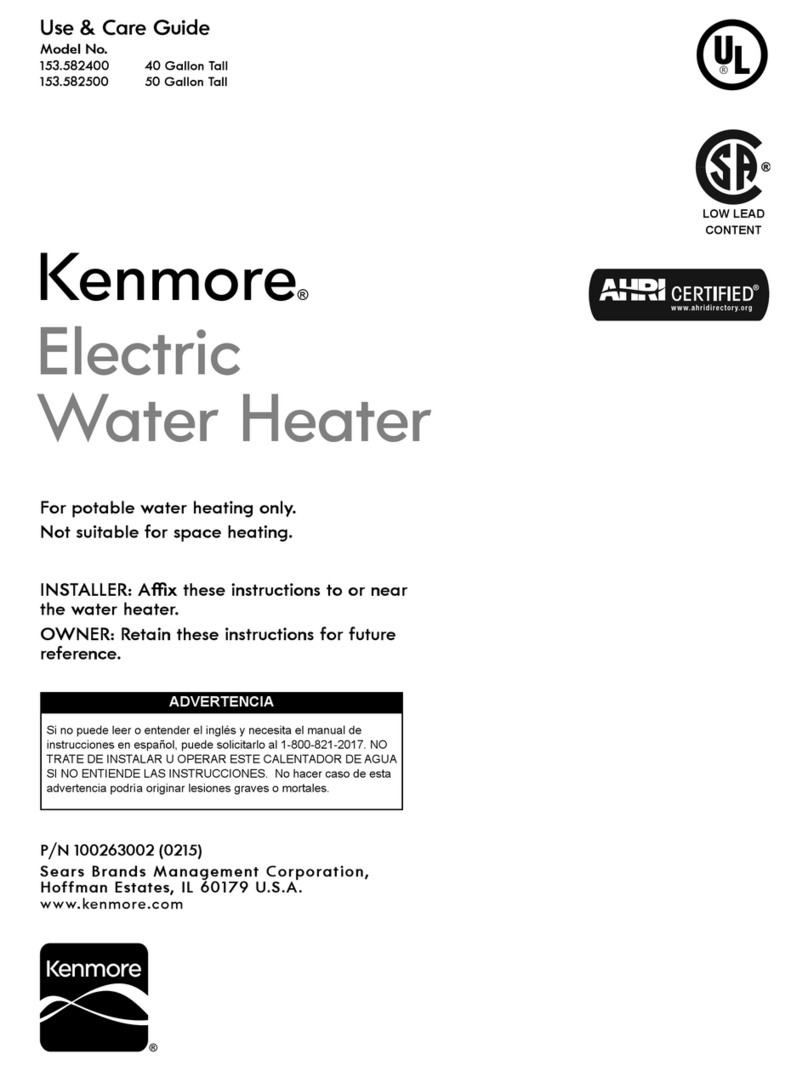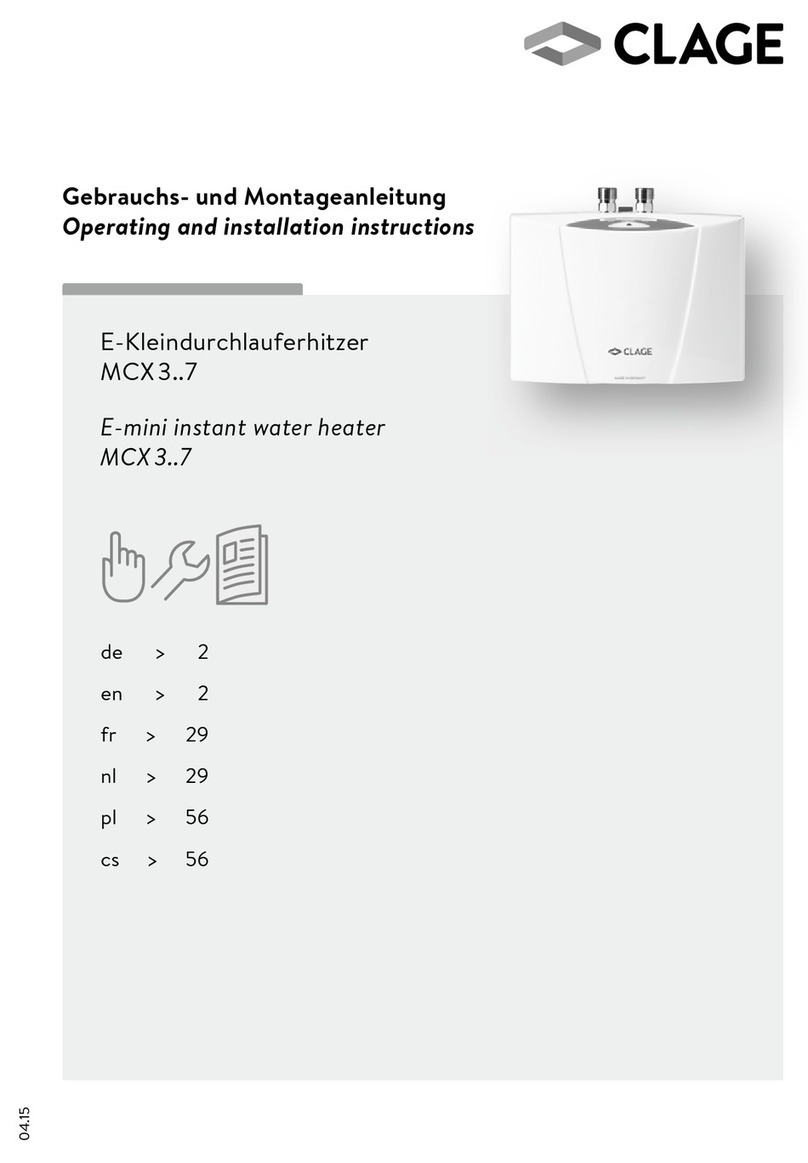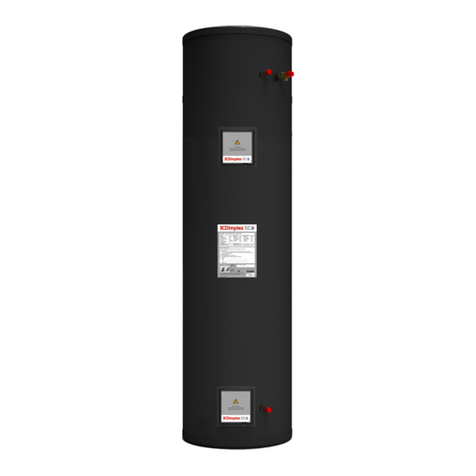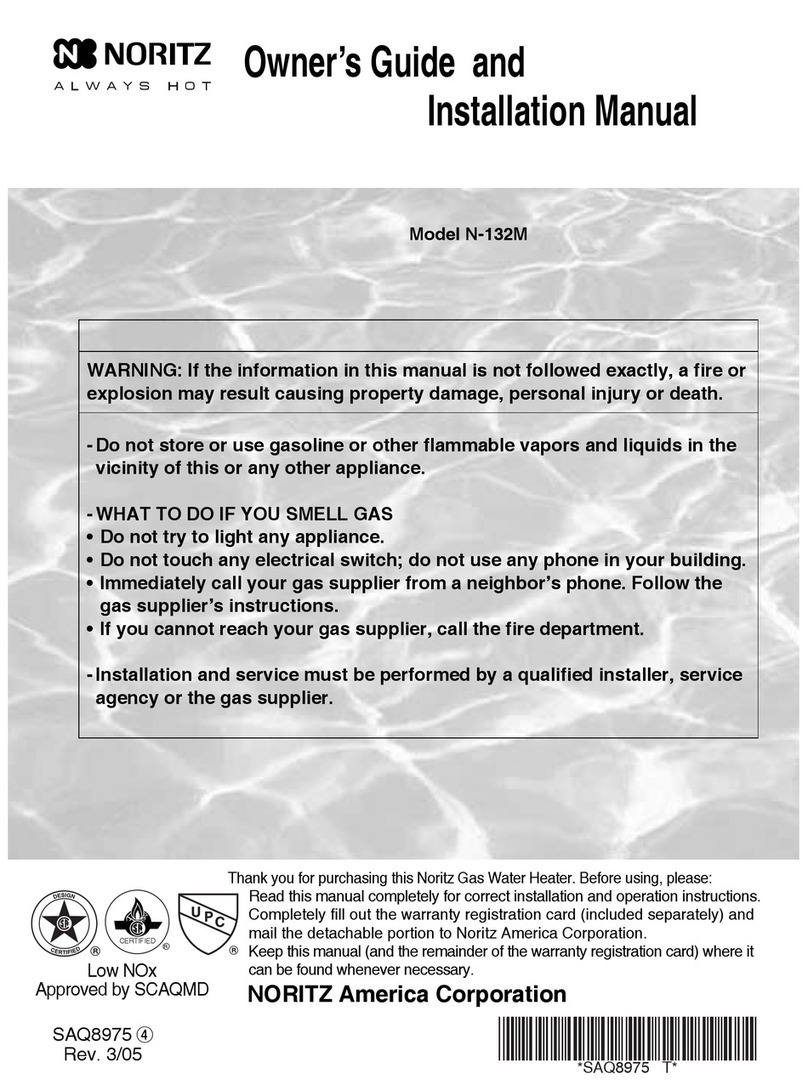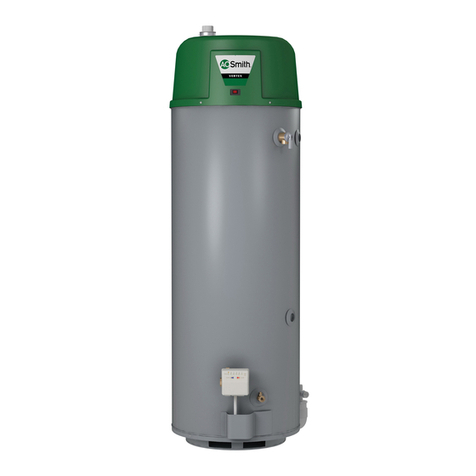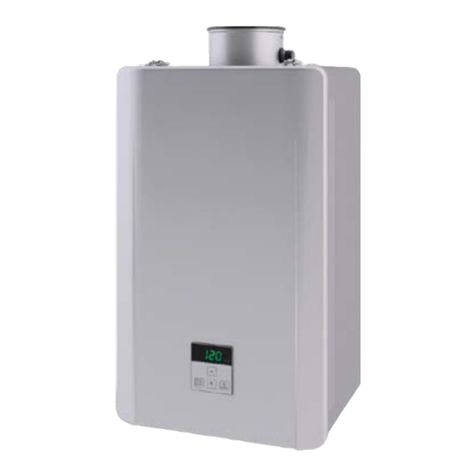
SAFETY INSTRUCTIONS
WARNING: When using electrical appliances, basic safety precautions to reduce the risk of
fire, electric shock, or injury to persons should be followed, including:
1. READ A INSTRUCTIONS BEFORE USING THIS WATER HEATER.
2. This water heater must be grounded. Connect only to properly grounded outlet. See
“GROUNDING INSTRUCTIONS” found on Page 4, Item 7.
3. Install or locate this water heater only in accordance with the provided installation
instructions.
4. Use this water heater only for its intended use as described in this manual.
5. Do not use an extension cord set with this water heater. If no receptacle is available
adjacent to the water heater, contact a qualified electrician to have one properly installed.
6. As with any appliance, close supervision is necessary when used by children.
7. Do not operate this water heater if it has a damaged cord or plug, if it is not working
properly, or if it has been damaged or dropped.
8. This water heater should be serviced only by qualified service personnel. Contact nearest
authorized service facility for examination, repair, or adjustment.
WARNING
This water heater is equipped with a heat exchanger. Extended engine coolant circulation
through the heater may result in excessively hot water.
This water heater tank and heat exchanger is made of aluminum. Some engine
manufacturers recommend that the cooling system be flushed periodically. Caustic chemicals
are commonly used. DO NOT flush caustic chemicals (such as Nalcool) through your system
with the heat exchanger hooked up or damage WI occur to the heater.
If flushing is required by your engine manufacturer, you must isolate the heater from this
process. After system flushing is complete and neutralized, you can then re-plumb the heater.
Make sure recommended automotive type premixed ethylene glycol coolants such as Prestone,
Xerex or Peak are used for replacement. Damage that occurs to the heater due to chemical
reaction by caustic chemicals is not covered under warranty.
CAUTION
Hydrogen gas can be produced in a hot water system served by these heaters that have
not been used for a long period of time (generally 2 weeks or more). Hydrogen gas is extremely
flammable. To reduce the risk of injury under these conditions, it is recommended that the hot
water faucet be opened for several minutes at the kitchen sink before using any electrical
appliance connected to the hot water system. If hydrogen is present, there will probably be an
unusual sound such as air escaping through the pipe as the water begins to flow. There should be
no smoking or open flame near the faucet at the time it is open.
